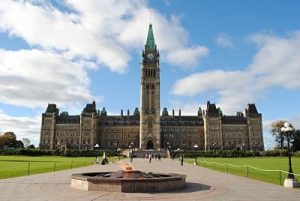Today, April 3, 2020, the COVID-19 Command Table, comprised of several experts at Ontario Health, Public Health Ontario, and researchers at Ontario universities, shared COVID-19 modelling and projection data to the general pubic. Experts modelled how the disease is spreading based on observed data and what has been shared from other countries.
Based on this, the government is moving with immediate and future additional public health measures, which include:
Immediate Focus
- Enhanced capacity for case and contact tracing is underway.
- Increased testing for COVID-19, with a focus on long-term care facilities, retirement homes and other group settings.
Future Measures
- Reduce the number and types of essential workplaces.
- Enhance focus on enforcement and fines for non-compliance.
- Expand direction/guidance on physical distancing, including retail settings.
- Enhanced support for elderly, homeless and other vulnerable populations and communities.
- Consider entry restrictions in some communities, including First Nations.
- Human resource management (movement of health care workers between settings).
- Use of technology to reinforce self-isolation (alerts).
- Additional public education and communication (shelter in place with limited exceptions).
Reduction of Essential Workplaces
As a temporary measure the Ontario government has revised the list of essential businesses. The list has been reduced from 74 to 44 categories.
The government is ordering all businesses not covered by the updated Emergency Order to close effective as of Saturday, April 4, 2020 at 11:59 p.m. This closure will be in effect for 14 days, with the possibility of an extension as the situation evolves.
Many of the workplaces delisted as essential by the government are those that employ engineers. While OSPE understands the essential nature of these workplaces and the importance of safeguarding engineering jobs, it is imperative that the government continue to take proactive steps towards ensuring these workplaces are safe.
Sandro Perruzza, CEO of OSPE, says, “Ontario’s engineers and OSPE members have not only an obligation to protect the public interest, but also a commitment to protecting the greater societal good. We will absolutely do our part to take further action to protect the health, safety and wellness of society, especially in these turbulent times.” Reflecting on the new measures implemented by the government, Perruzza continued, “OSPE supports any actions that will limit the spread of COVID-19. We are 100% committed to supporting front line workers, and the Ontario engineers working behind the scenes to develop, manufacture, and provide the much needed equipment and supplies required across the province, and country.”
“OSPE will continue to have dialogue with the provincial government and industry partners. Our aim right now is to provide guidance, assistance, and advice on the best way forward—to limit the transmission of the virus and prevent a re-emergence. Once the threat of COVID-19 has passed, we will be prepared and focused on redeploying engineers to key industries to reinvigorate our economy in an efficient and effective manner.”
OSPE takes seriously its role in this crisis and agrees with comments made by Premier Doug Ford in today’s press conference, “We are giants when it comes to technology, ingenuity, engineering…we can build anything.” OSPE believes that engineers are well equipped to contribute meaningfully at this time.
In addition to today’s announcements, OSPE also expects strict oversight from the Ministry of Labour, Training and Skills Development to ensure the existing construction projects are safe
OSPE assisted our partners at CDAO in developing an industry best practice guide, gathering recommendations developed by leading health and safety experts in Ontario’s infrastructure sector, including engineers. Recommendations regarding physical distancing, on-site sanitation and illness reporting were included.
As Perruzza commented earlier this week, “The health, safety and wellness of all our people has always been paramount to our members. It is everyone’s responsibility to work in a manner that protects the health and safety of not only yourself, but of your fellow worker. These guidelines are your best bet to ensure that not only are you safe, but that you go back home to your family healthy at the end of the day”.
Below is the list of essential workplaces that impact engineers and engineering graduates in Ontario. The full updated essential businesses list can be found here.
- Hardware products.
- Vehicle parts and supplies.
- Pet and animal supplies.
- Office supplies and computer products including computer repair.
- Safety supplies.
- Capital markets and related securities trading and advisory services.
- Banking/credit union activities including credit intermediation.
- Insurance.
- Land registration services.
- Real estate agent services.
- Pension and benefits payment services.
- Financial services including payroll and payment processing and accounting and tax services.
- Information Technology (IT) services, including online services, software products and the facilities necessary for their operation and delivery.
- Telecommunications providers and services (phone, internet, radio, cell phones etc.) and facilities necessary for their operation and delivery.
- Newspapers, radio and television broadcasting.
- transportation services provided by air, water, road, and rail, including taxis and other private transportation providers, and
- support services for transportation services, including,
- logistical support, distribution services, warehousing and storage, truck stops and tow operators,
- services that support the operations and safety of transportation systems including maintenance and repairs, and
- marinas, but only to the extent that the marina is necessary to enable individuals to access their primary place of residence.
- Businesses that produce food and beverages, and agricultural products including plants, including by farming, harvesting, aquaculture, hunting and fishing.
- Businesses that process, manufacture or distribute food, beverages, crops, agricultural products, animal products and by-products.
- Businesses that support the food or agricultural products supply chains and the health and safety of food, animals and plants.
Construction projects and services required to ensure safe and reliable operations of, or to provide new capacity in, critical provincial infrastructure, including transit, transportation, energy and justice sectors beyond the day-to-day maintenance.
Critical industrial construction activities required for,
- the maintenance and operations of petrochemical plants and refineries,
- significant industrial petrochemical projects where preliminary work has already commenced,
- industrial construction and modifications to existing industrial structures limited solely to work necessary for the production, maintenance, and/or enhancement of Personal Protective Equipment, medical devices (such as ventilators), and other identified products directly related to combatting the COVID-19 pandemic.
- a footing permit has been granted for single family, semi-detached and townhomes
- an above grade structural permit has been granted for condominiums, mixed use and other buildings, or
- the project involves renovations to residential properties and construction work was started before April 4, 2020.
- Businesses that provide and ensure the domestic and global continuity of supply of resources, including mining, forestry, aggregates, petroleum, petroleum by-products and chemicals.
- Electricity generation, transmission, distribution and storage and natural gas distribution, transmission and storage.
- Sewage treatment and disposal.
- Collecting, transporting, storing, processing, disposing or recycling of any type of waste.
- Potable drinking water.
- Critical infrastructure repair and maintenance including roads, dams, bridges etc.
- Environmental rehabilitation, management and monitoring, and spill clean up and response.
- Administrative authorities that regulate and inspect businesses.
- Professional and social services that support the legal and justice system.
- Government services including but not limited to policing and law enforcement, fire and emergency services, paramedics, coroner and pathology services, corrections and court services, licences and permits.
- Organizations and providers that deliver home care services or personal support services to seniors and persons with disabilities.
- Businesses that sell, rent or repair assistive/mobility/medical devices, aids and/or supplies.
- Regulated health professionals (urgent care only) including dentists, optometrists, chiropractic services, ophthalmologists, physical and occupational therapists and podiatrists.
- Organizations that provide health care including retirement homes, hospitals, clinics, long-term care facilities, independent health facilities and mental health and addictions counselling supports.
- Laboratories and specimen collection centres.
- Manufacturers, wholesalers, distributors and retailers of pharmaceutical products and medical supplies, including medications, medical isotopes, vaccines and antivirals, medical devices and medical supplies.
- Manufacturers, distributors and businesses that provide logistical support of or for products and/or services that support the delivery of health care in all locations.
- Not-for-profit organizations that provide critical personal support services in home or residential services for individuals with physical disabilities.
- Not-for profit organizations that support the provision of food, shelter, safety or protection, and/or social services and other necessities of life to economically disadvantaged and other vulnerable individuals.
OSPE will continue to advocate for responsible, safe construction site practices in Ontario during the COVID-19 crisis.
For more on COVID-19 and its affect on engineering in Ontario, visit our COVID-19 news page.




